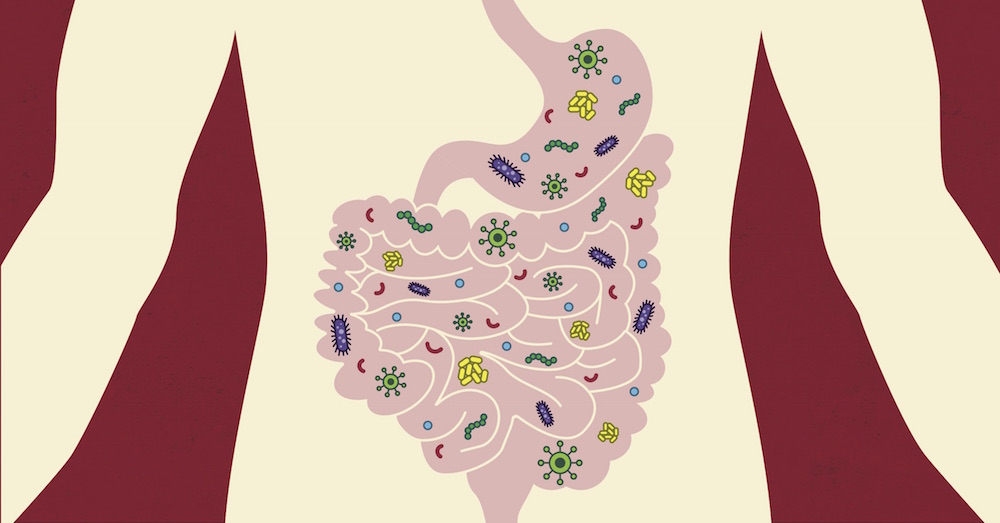The human gut – also known as the gastrointestinal tract, encompassing the mouth, esophagus, stomach, and intestines – is home to trillions of microorganisms, including bacteria and single-cell organisms called archaea.
These microbes perform a variety of functions that are essential to health, such as maintaining the inner lining of the intestines, providing nutrients such as vitamins, and protecting against pathogens. They also play a key role in the proper functioning of the immune system. A disruption in the balance of these bacteria can result in a wide range of health problems, including allergies, irritable bowel disease, and ulcers.

The relation between gut microbes and cancer is just beginning to be explored scientifically, but research indicates the link is extremely complex. Researchers estimate that there are between 40 and 1,500 different types of microbes in the gut. Some are known to promote cell proliferation, while others appear to protect against cancerous growth. In some cases, conditions that are favorable to the growth of one type of cancer may deter the growth of another type.
The most clear-cut example of a gut bacterium involved in cancer is Helicobacter pylori, or H. pylori. The bacterium, which is present in about half of the world’s population, is responsible for many cases of gastritis (inflammation of the lining of the stomach) and most stomach ulcers, and is a strong risk factor for stomach cancer, researchers have found. However, in the majority of people, H. pylori does not cause disease and does not need treatment.
Diets rich in whole grains and fiber are known to protect against colon cancer, and a study by Dana-Farber researchers found that such diets achieve these benefits, in part, by altering the relative amounts of various microorganisms in the digestive tract, including Fusobacterium nucleatum. Research by investigators at Dana-Farber and Brigham and Women’s Hospital also showed that F. nucleatum was more prevalent in tumors on the right side of the colon and was associated with a lower immune response to cancer and a worse prognosis.
Learn more about colon cancer from Dana-Farber Cancer Institute.
Last year, another group of Dana-Farber researchers reported that colorectal cancer cells that spread to other parts of the body appear to bring along several of the species of bacteria that were their companions in the colon. The finding, which represents one of the first times that the microbiome of colorectal cancers has been shown to be maintained when the cancer metastasizes, could offer a new avenue for treatment of the disease, researchers say.
While many questions about the microbe-cancer link remain unresolved, investigators suspect that part of the answer lies in microbes’ ability to raise or lower the level of inflammation in the gut and to train immune cells to be on the lookout for cancer. Chronic inflammation is a risk factor for cancer.
For example, researchers have found that mice that lack molecules to reduce inflammation often have more bad bacteria in their gut and are more susceptible to bowel cancer than mice with normal levels of the inflammation-lowering molecules. A study in humans produced similar results.
Recent studies have drawn even more connections between gut microbiota – the microorganisms in the digestive tract – and cancer. In 2001, a team of researchers at the Massachusetts Institute of Technology demonstrated that infecting mice with the bacterium Citrobacter rodentium spurred colon cancer development. And in 2014, investigators at the University of Michigan found that the feces of people with cancer tended to have an altered composition of bacteria, with an excess of the common mouth microbes Fusobacterium or Porphyromonas. It isn’t clear, however, whether changes in microbiota in patients with colon cancer contribute to the disease or are a result of tumor development.
Even more recently, investigators found tantalizing associations between the diversity and composition of microbial communities and patients’ response to immunotherapy in multiple types of cancer. Dana-Farber researchers are studying the important role of the microbiome in the treatment of colorectal cancer and the side effects brought on by some treatments.
